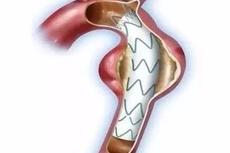科技工作者之家
科技工作者之家APP是专注科技人才,知识分享与人才交流的服务平台。
科技工作者之家 2019-04-21
来源:Nature自然科研

又到了每周一次的 Nature Podcast 时间了!欢迎收听本周由Benjamin Thompson和 Charlotte Stoddart 带来的一周科学故事,本期播客片段讨论心力衰竭。欢迎前往iTunes或你喜欢的其他播客平台下载完整版,随时随地收听一周科研新鲜事。

音频文本:
Interviewer: Benjamin Thompson
First up on today’s show, I’ve been looking into some new research about heart failure – a very serious condition which is characterised by a weakness of the heart which can’t pump blood effectively around the body. It’s a debilitating, long-term condition which is most common in older people. There are a few different types of heart failure and of the most common is called ‘heart failure with reduced ejection fraction.’
Interviewee: Joseph Hill
That’s the kind of heart failure you get if you have a heart attack, for example, where the heart muscle is injured, part of it is dead and no longer able to contract, and the ability of the heart to expel blood is decreased. That is a disorder that is very common. We see it all the time and we have many, many, many tools to treat that.
Interviewer: Benjamin Thompson
This is cardiologist Joseph Hill from the University of Texas Southwestern Medical Center in the US.
Interviewee: Joseph Hill
Another type is heart failure with preserved ejection fraction (HFpEF). That is a disorder that is just as common as heart failure with reduced ejection fraction, in fact, nowadays, it’s more common.
Interviewer: Benjamin Thompson
Rather than failing to properly expel blood, HFpEF hearts have impaired ability to fill with it. Although these two types of heart failure have similar symptoms – for example, shortness of breath, exhaustion, swollen limbs – when it comes to HFpEF, the treatment options are very different.
Interviewee: Joseph Hill
We have nothing to treat this disorder and it’s a very frustrating clinical situation. What we typically do is we will diurese the patient to eliminate the excess fluid in their lungs and in their belly and in their legs, and that will make them feel better. We will treat their comorbidities, we will treat their hypertension, we will treat their diabetes, but we have nothing at all to treat the root of the problem, what is wrong with the heart itself.
Interviewer: Benjamin Thompson
One of the reasons for the lack of treatment options has been the lack of a suitable model to test them on. While animal models of HFpEF do exist, they don’t necessarily reflect all of the symptoms seen in humans. Joseph is hoping to change that and has this week published a paper in Nature detailing a new mouse model of HFpEF that he thinks mirrors the human syndrome more closely.
Interviewee: Joseph Hill
We took a very simplistic approach – that is, most patients with HFpEF are obese with diabetes and they have high blood pressure, so we decided to make a mouse that’s obese with diabetes and that has high blood pressure.
Interviewer: Benjamin Thompson
By feeding the mice a high-fat diet and administering a drug to raise their blood pressure, the team were able to mimic many of the characteristics of HFpEF in humans, including impaired filling of the heart, exercise intolerance and lung congestion. Having this model allowed Joseph and his colleagues to look for a mechanism underlying HFpEF in these mice. It turns out that an enzyme called iNOS was being overproduced in the mouse hearts. This enzyme makes the molecule nitric oxide, or NO, which is important for many physiological processes, so having increased levels of the iNOS enzyme was having effects on other proteins in the mouse hearts.
Interviewee: Joseph Hill
The animal is flooded with NO and what that NO does is it covalently couples to many, many, many different proteins, including one of them that plays a significant role in the unfolded protein response.
Interviewer: Benjamin Thompson
The unfolded protein response is a set of emergency measures that stressed cells activate when faced with a build-up of incorrectly folded proteins – something that is very bad for cells. In a number of heart disorders, the unfolded protein response is switched on in response to cellular stress, but in the HFpEF mice, it was switched off as a result of the excess nitric oxide. This was a surprise for Joseph, and could represent a new mechanism underlying HFpEF. The unfolded protein response was also found to be downregulated in heart biopsies from humans with HFpEF, showing some similarity between the animal model and the human syndrome. Joseph says though that this work is only looking at one potential mechanism, and there could be a lot more going on.
Interviewee: Joseph Hill
There are many proteins that are covalently altered by this surfeit of NO and we haven’t begun to look at all of them – there are many of them. So, what we have found is that this excess NO is crippling the unfolded protein response, but it’s entirely possible that there are many other events going on as well, that the NO coupling to other proteins is doing important things that we haven’t begun to figure out yet.
Interviewer: Benjamin Thompson
Regardless, just having an animal model of HFpEF that shows many of the symptoms seen in humans will likely be of benefit to other researchers, according to Elizabeth Murphy from the National Heart, Lung and Blood Institute in the US, who wasn’t involved in the study.
Interviewee: Elizabeth Murphy
The main utility of this to me as a cardiac researcher is it now gives a new tool to study drugs. HFpEF is 50% and growing of the patients with heart failure, and if I want to say does this drug work for HFpEF patients, I have no model to test it in. So, now I at least have a model and I think many researchers in the field will be testing their drugs on this model.
Interviewer: Benjamin Thompson
Elizabeth thinks that because HFpEF is caused by such a complex range of factors, care must be taken to tweak the new mouse model – perhaps by using different methods to induce the condition – to see if the downstream manifestations of HFpEF is the same each time. In humans, HFpEF affects more women than men, perhaps by as much as two to one. Elizabeth also says that this is something that needs to be considered when developing future models for HFpEF.
Interviewee: Elizabeth Murphy
The study seems to be primarily carried out in male animals, and I think it would be important to see whether if they did these studies in female animals, would they get a similar result? And furthermore, they show a role for iNOS in the unfolded protein response. Since there are metabolic differences particularly in the way iNOS is regulated in males and females, would they get a similar upregulation of iNOS in female mice?
Interviewer: Benjamin Thompson
Joseph told me he is currently researching how sex differences in mice might affect HFpEF. He also says that the current animal model is just a start and won’t necessarily be representative of everyone with the condition.
Interviewee: Joseph Hill
HFpEF is notoriously heterogeneous and I don’t mean to suggest that this model is HFpEF for everybody. I believe, based on my reading of the literature, that this is sort of garden-variety HFpEF – it is certainly a very common manifestation – but I don’t mean to suggest that this is all of HFpEF because it’s probably not.
Interviewer: Benjamin Thompson
Whether this new model represents all of HFpEF or not, it gives researchers a new place to start when looking at the mechanisms underlying this complex and currently untreatable condition that affects millions of people worldwide. You can read Joseph’s paper, and a News and Views article about the work over at nature.com.ⓝ
Nature Podcast每周为您带来科学世界的全球新闻故事,覆盖众多科研领域,重点讲述Nature期刊上激动人心的研究故事。我们将话筒递给研究背后的科学家,呈现来自Nature记者和编辑的深度分析。在2017年,来自中国的收听和下载超过50万次,居全球第二。
↓↓iPhone用户长按二维码进入iTunes订阅

↓↓安卓用户长按二维码进入推荐平台acast订阅

点击“阅读原文”访问Nature官网收听完整版播客

来源:Nature-Research Nature自然科研
原文链接:http://mp.weixin.qq.com/s?__biz=MzAwNTAyMDY0MQ==&mid=2652560087&idx=3&sn=d2f652de9539a80033c179705091fe14&chksm=80cd7459b7bafd4f2d8f07274fac8f39955920e8d60447ea0af3d5513f86611dcc813349337b&scene=27#wechat_redirect
版权声明:除非特别注明,本站所载内容来源于互联网、微信公众号等公开渠道,不代表本站观点,仅供参考、交流、公益传播之目的。转载的稿件版权归原作者或机构所有,如有侵权,请联系删除。
电话:(010)86409582
邮箱:kejie@scimall.org.cn

【研究】主动脉夹层发病率冬高夏低,日高夜低!Heart杂志武汉同济医院研究

Heart杂志武汉同济医院研究:主动脉夹层发病率冬高夏低,日高夜低!

脂蛋白(a)有助于预测冠心病复发!Heart杂志刊登阜外医院李建军等研究

Heart:女性补钙要抓紧,骨质疏松或将影响心血管健康!

Eur Heart J:基于蛋白质的心源性休克患者分类工具

Heart杂志研究称,偶尔白天打盹者心血管病风险减半

Eur Heart J:肾小管功能标志物与心血管事件和死亡风险

Heart:主动脉右心室患者的肺动脉高压

Heart:房颤患者非维生素K拮抗剂停药特征

Heart:COVID-19大流行对STEMI患者死亡率的影响